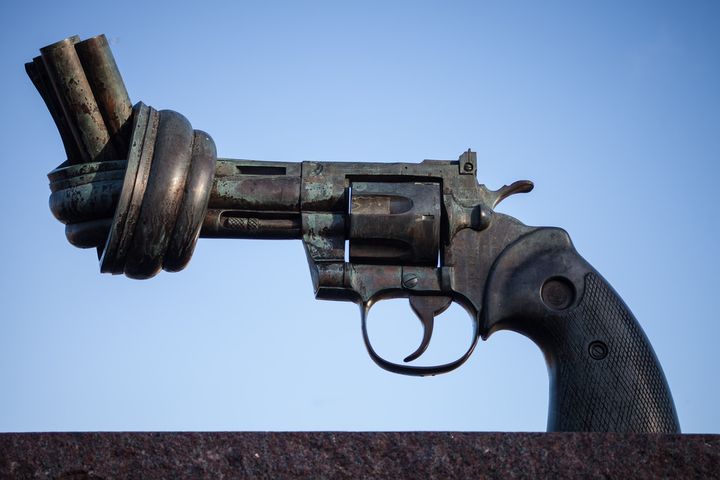
“Nobel wanted a prize that promoted global disarmament.”
-Fredrik Heffermehl, a Nobel Peace Prize Jurist
When even the United States faces an all-too-real dilemma of potential civilian/protestor violence breaking out, as a direct outcome of an increasingly volatile political climate this election year, we often see allusions to the nonviolent resistance philosophy. It was, after all, the method of choice for both Gandhi and Dr. King, even when faced with some of the most aggressive, prolific oppositional forces in last century. Both leaders were successful in launching and executing movements that helped the arc of history "bend toward justice," so to speak. But as we know all too well, weaponized violence, whether in terrorist cells, militias or police forces, is the prevalent reality facing any group attempting to organize against corruption and oppression.
Let’s consider Syria...
According to the Cornell University Library:
“Small peaceful protests started on 26 January 2011 in Syria and escalated to an ongoing internal conflict. The wave of Arab uprisings that began with the Tunisian revolution of January 2011 reached Syria in mid-March, when residents of the small southern town of Dara’a took to the streets to protest the torture of students who had put up anti-government graffiti. The unrest spread to other parts of the country. Protesters demand reforms, the ouster of President Bashar al-Assad, allowing political parties, equal rights for Kurds, and broad political freedoms, such as freedom of the press, speech and assembly. The Syrian government has made several concessions, though widely considered trivial by protesters. On 21 April, the government formally declared the repeal of an emergency law that had been in place since 1963 and which allowed the government sweeping authority to suspend constitutional rights…”
“The Syrian Civil War is arguably the worst humanitarian crisis since the Second World War, with over a quarter million killed, roughly the same number wounded or missing, and half of Syria’s 22 million population displaced from their homes. But more than that, Syria today is the largest battlefield and generator of Sunni-Shia sectarianism the world has ever seen, with deep implications for the future boundaries of the Middle East and the spread of terrorism…”
Five years later, millions of Syrians are dead, missing, and displaced.
Other than creating yet another violent militia and/or utilizing traditional guerilla tactics, what option does a population seeking basic liberation have, realistically, that would stand a chance against the heavily armed and formally trained status quo?
In short -- is there a real way to disrupt armed violence?
Samuel Colt, inventor of the revolver, liked to joke that his gun was an “equalizer." But, if you listen to Iraq Veteran and former Army Ranger, Officer Paul McGuire, you might believe: “You Can’t Wage Peace with the Barrel of a Gun”.
Wouldn’t democracy and discourse be better served if there were a way to simply disable weapons? What if you could make the use of weapons so uncomfortable that people no longer could justify using them? How might we increase empathy and change the culture around weapons?
Imagine if a nation experiencing unrest did not have the destructive and irreversible option of guns and bombs available for “conflict resolution." It would be a true game-changer, wouldn't it?
Designing an Anti-Weapon
Like most solutions, there could be proactive or reactive devices:
Proactive devices might
- Disable gunpowder
- Clog or corrode barrels
- Jam triggers or firing pins
Reactive Devices might
- Use sound, light, or other stimuli to incapacitate people in the region of a conflict
- Use droids to mark or handicap users of weapons
- Magnetic pulses which make bullets inaccurate every time
Now, in the course of this thought experiment, it's important to recognize that in no way would these creations be a panacea for all humanitarian crises… but, it would certainly open up the possibilties and diversify strategies for resistance.
To paraphrase Jim Carrey; “Sure, you could go on a killing spree with a knife, but guns make it so much easier…” to that point, how much violence would be prevented if weapons were simply made useless -- even temporarily!
Could a thought like this potentially lead to the subject of the next XPRIZE Challenge? Or maybe you have a different idea as to how to best address seemingly unsolvable global problems?
You could become an XPRIZE Visioneer!
Join today and solve help a billion people.








